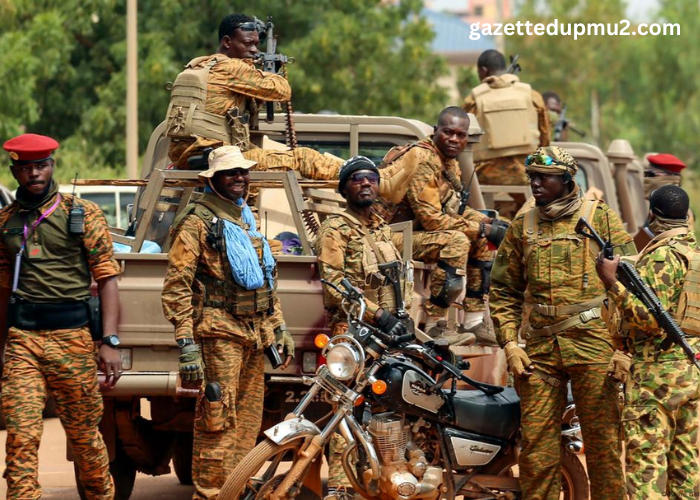Burkina Faso, a landlocked country in West Africa, has faced an alarming rise in terrorism over recent years. The nation’s struggle with extremist violence has transformed its socio-political landscape, leading to widespread suffering and instability. This article provides an in-depth examination of the terrorism crisis in Burkina Faso, exploring its origins, the impact on society, and the various responses aimed at addressing the threat.
The Rise of Terrorism in Burkina Faso
Burkina Faso, traditionally known for its stability and relatively peaceful environment, has seen a dramatic shift in recent years. The rise of terrorism in the country is linked to broader regional dynamics involving extremist groups operating across the Sahel region. These groups have exploited local grievances and weak governance structures to extend their influence into Burkina Faso.
Regional Context and Extremist Groups
The Sahel region, encompassing parts of Mauritania, Mali, Niger, Chad, and Burkina Faso, has become a hotspot for extremist activities. Groups such as al-Qaeda in the Islamic Maghreb (AQIM), the Movement for Oneness and Jihad in West Africa (MUJAO), and Boko Haram have established a significant presence in the area. Their activities often spill over into Burkina Faso, exacerbating local conflicts and spreading violence.
The transnational nature of these extremist groups means that they operate with cross-border support and logistics, complicating efforts to combat them. In Burkina Faso, this has translated into frequent attacks on military installations, government facilities, and civilian targets.
The Impact of Terrorism on Burkina Faso
The rise of terrorism in Burkina Faso has had profound effects on the country’s security, economy, and social fabric. Understanding these impacts is crucial for grasping the full scope of the crisis and the challenges faced by both the government and the people.
Security Challenges
Terrorism has severely undermined security in Burkina Faso. The frequency of attacks has led to a significant loss of life and has strained the capabilities of the national security forces. Militants have targeted both urban and rural areas, causing widespread fear and instability.
The presence of armed extremist groups has also led to the displacement of thousands of people. Internally displaced persons (IDPs) have fled from their homes to escape violence, putting immense pressure on local resources and infrastructure. The government faces the dual challenge of protecting its citizens while managing the humanitarian crisis resulting from displacement.
Economic Consequences
The economic impact of terrorism in Burkina Faso has been substantial. The violence has disrupted local economies, particularly in areas dependent on agriculture and trade. Farmers and traders are often unable to carry out their activities due to the insecurity, leading to economic losses and food shortages.
Tourism, a sector that had been growing in Burkina Faso, has also suffered. The perception of instability has deterred international tourists, affecting businesses that rely on tourism revenue. The decline in economic activity exacerbates existing vulnerabilities and makes recovery more difficult.
Social and Humanitarian Impact
The social impact of terrorism in Burkina Faso is deeply troubling. The violence has strained community relations and exacerbated ethnic and religious tensions. Extremist groups often exploit existing grievances to incite violence and create divisions within communities.
Humanitarian needs have surged as a result of the violence. Access to healthcare, education, and basic services has been disrupted in affected areas. The influx of IDPs has further strained these services, making it challenging for the government and humanitarian organizations to provide adequate support.
The Government’s Response to Terrorism
In response to the escalating terrorist threat, the government of Burkina Faso has implemented a range of measures aimed at restoring security and stability. These efforts include military actions, diplomatic initiatives, and community engagement strategies.
Military Operations and Security Measures
The Burkinabe military has been actively engaged in counter-terrorism operations aimed at neutralizing extremist groups and restoring order. Operations have targeted known militant strongholds and attempted to disrupt their logistics and operations.
However, the effectiveness of these military operations has been limited by several factors, including the vast and challenging terrain of the Sahel region and the often elusive nature of the extremist groups. The government has also sought support from international partners to enhance its counter-terrorism capabilities.
International Cooperation and Support
Burkina Faso has received support from various international actors in its fight against terrorism. The country is part of regional initiatives such as the G5 Sahel joint force, which aims to enhance cooperation among Sahelian countries in combating extremist threats.
Additionally, Burkina Faso has received assistance from international organizations, including financial aid and technical support for counter-terrorism efforts. This international cooperation is crucial for bolstering the country’s capacity to address the security challenge and mitigate the humanitarian impact.
Community Engagement and Prevention
Addressing the root causes of terrorism requires a multifaceted approach that includes community engagement and prevention efforts. The government has been working to strengthen community resilience and counter radicalization through various programs.
These initiatives focus on addressing socio-economic grievances, promoting education, and fostering dialogue among different community groups. By addressing the underlying factors that contribute to extremism, these efforts aim to reduce the appeal of extremist ideologies and enhance social cohesion.
Challenges and Future Prospects
Despite the efforts to combat terrorism, Burkina Faso faces significant challenges in achieving long-term stability. The nature of the extremist threat, combined with socio-economic and political factors, poses ongoing difficulties.
Persistent Security Threats
The persistence of extremist groups and their ability to adapt to counter-terrorism measures continue to pose a significant challenge. The shifting nature of the threat means that the government must remain vigilant and flexible in its response strategies.
Socio-Economic Vulnerabilities
The socio-economic vulnerabilities that contribute to extremism, such as poverty and unemployment, need to be addressed comprehensively. Without significant improvements in these areas, the risk of radicalization and recruitment by extremist groups remains high.
Regional Dynamics
The regional dynamics of the Sahel, including cross-border movements of militants and political instability in neighboring countries, complicate the situation. Coordinated regional and international efforts are essential for effectively addressing the transnational nature of the threat.
Conclusion
The terrorism crisis in Burkina Faso presents a complex and multifaceted challenge that affects the country’s security, economy, and social fabric. The rise of extremist violence has had profound impacts on the lives of its citizens and has strained the nation’s resources.
Efforts to combat terrorism in Burkina Faso involve a combination of military action, international cooperation, and community engagement. While progress has been made, significant challenges remain in achieving long-term stability and addressing the root causes of extremism.
As Burkina Faso continues to navigate this crisis, the need for a comprehensive and coordinated approach remains paramount. By addressing security concerns, socio-economic vulnerabilities, and regional dynamics, the country and its partners can work towards a more secure and stable future.





